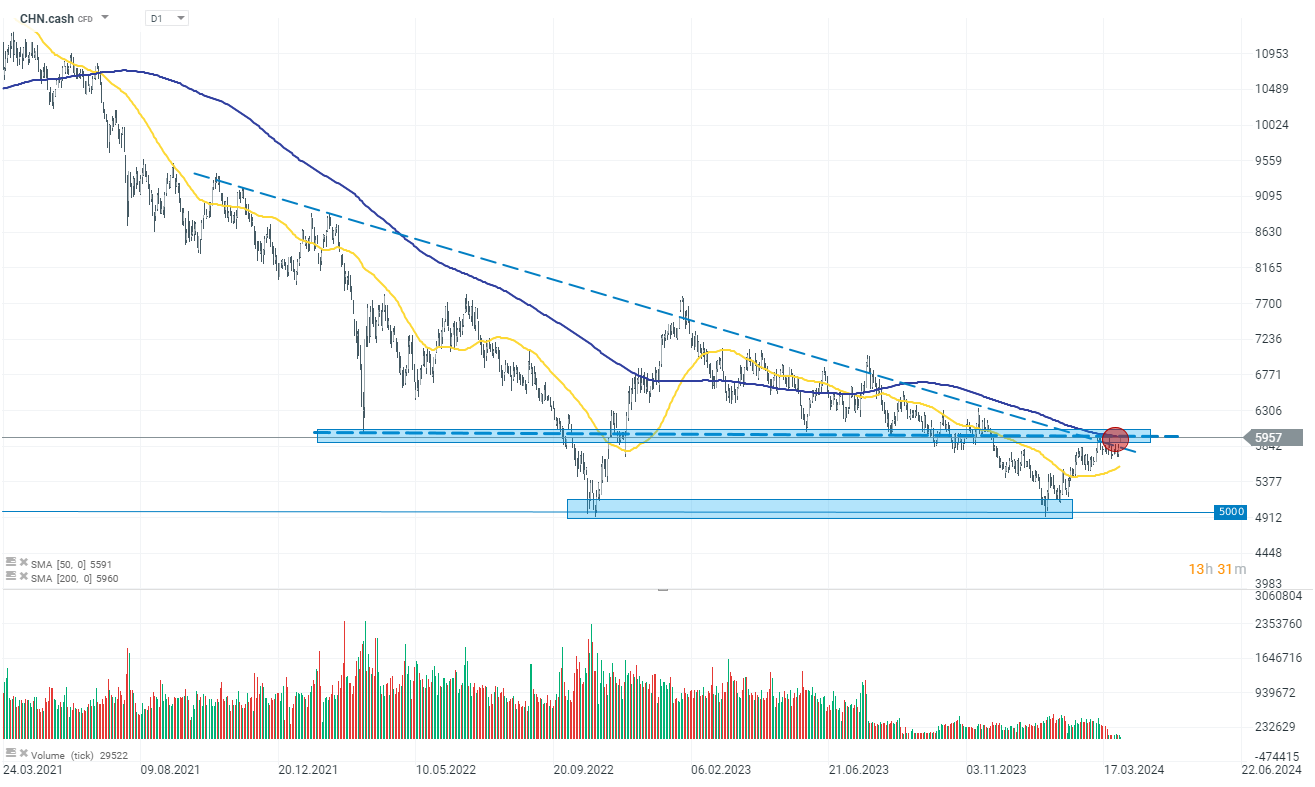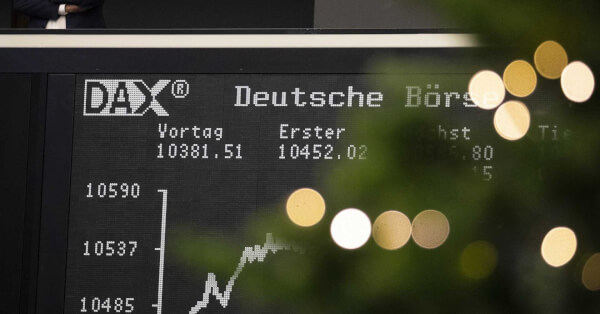The Chinese stock market has recently shown promising signs of recovery, indicating a potential change from a long-term downward trend. Especially notable is the performance in Hong Kong, where the Hang Seng China Enterprises Index has achieved nearly a 20% increase from its lowest point at the end of January. This growth was driven by positive economic data, including improvements in the March PMI index for the industry. Better macroeconomic reports have allowed investors to rebuild hopes for improvement in China and prospects for the coming months and years. The rally in the Hong Kong market after the holiday period is largely seen as catching up with gains in Western markets and the USA. Global investment funds are increasingly focusing on China, adjusting their portfolios to include more Chinese stocks and reducing exposure to other markets, such as India.
HSCEI (CHN.cash), Daily Interval
The HSCEI index quotes are in a key resistance zone just below the 6000 point area. This level has been both a support and resistance zone over the last two years. This time, bulls need to break through this area upwards to confirm the end of the long-term downward trend and potentially create a base for a further rebound above 6000 points. From the downside, notable levels in case of a correction are 5700 and 5500 points, respectively.

Source: xStation 5

VIX struggle to rise higher despite uncertainty on Wall Street 🔎

Daily summary: Markets capitulate under the influence of the Persian Gulf

US Open: Wall Street in Blood

DE40 dips 3% and falls to 2026 lows 🚨📉


